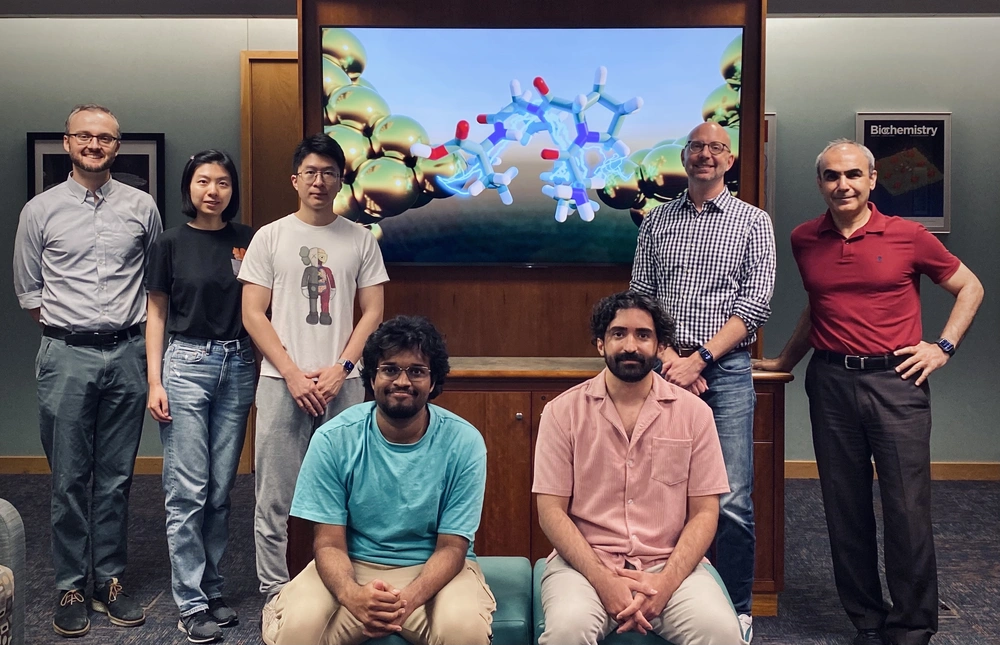
Interdisciplinary researchers in Chemical and Biomolecular Engineering and Chemistry at the Beckman Institute for Advanced Science and Technology combined single-molecule experiments, molecular dynamics simulations and quantum mechanics to validate findings that electron transport, the energy-generating process inside living cells that enables photosynthesis and respiration, is enhanced in peptides with a collapsed, folded structure.
The research was led by Charles Schroeder, the James Economy Professor in Materials Science and Engineering and faculty affiliate in chemistry, and also included chemistry professor Nick Jackson and Emad Tajkhorshid, J. Woodland Hastings Endowed Chair and Professor of Biochemistry, and faculty affiliate in chemistry. Their study was recently published in the Proceedings of the National Academy of Sciences.
“This discovery provides a new understanding of how electrons flow through peptides with more complex structures while offering new avenues to design and develop more efficient molecular electronic devices,” Schroeder said.